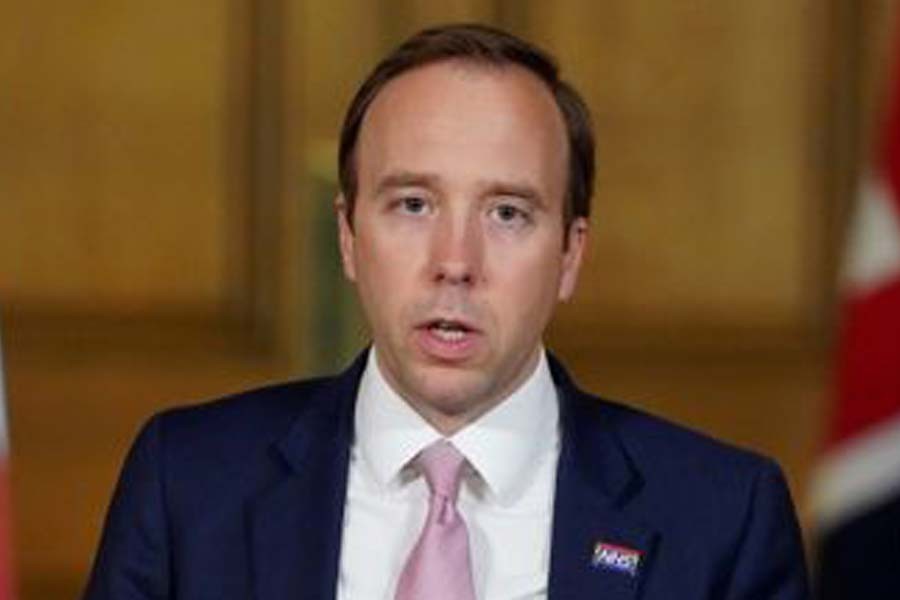Britain put on trial a just-invented mechanism that could identify coronavirus infection in 20 minutes time on the spot, without sending samples to laboratories
UK Health Secretary Matt Hancock has said more than 10 million antibody tests - that check if someone has had the virus in the past - will start being rolled out next week, reports BBC.
It comes as the PM decided to scrap the fees to use the NHS for overseas health service staff and care workers.
Non-EU migrants currently have to pay the health immigration surcharge, which is £400 per year and set to rise to £624 in October.
But after mounting pressure from MPs, Boris Johnson decided foreign NHS staff and care workers should be exempt.
The number of people who have died after testing positive for the virus has now reached 36,042, a rise of 338, the government announced on Thursday.
There are currently two types of test for the coronavrius.
Swab tests are already available to all adults and children aged over five on the NHS. They involve taking a swab up the nose or from the back of the throat and indicate if a person currently has Covid-19.
The antibody test is a blood test that looks for antibodies in the blood to see whether a person has had the virus. Antibodies are made by our immune system as it learns to fight an infection.
The new swab tests will be trialled in Hampshire in some A&E departments, GP testing hubs and care homes. The trial will run for six weeks and test up to 4,000 people.
Speaking at the Downing Street briefing, Matt Hancock said the new swab test "is interesting to us because it is so fast," adding: "You get the result on the spot."
"We want to find out if it will be effective on a larger scale. If it works, we'll roll it out as soon as we can."
Hancock also spoke about antibody tests, saying the government had struck a deal to supply 10 million of them to the NHS. They will begin being rolled out to the NHS next week.
"We've signed contracts to supply in the coming months over 10 million tests from Roche and Abbott," he said.
"From next week we will begin rolling these out in a phased way, at first to health and care staff, patients and residents.
He said the UK government's deal will cover all of the devolved nations, and each will decide "how to use its test allocation and how testing will be prioritised and managed locally".
Having antibodies does not automatically mean you cannot get sick or harbour the virus and pass it on to others, BBC health correspondent James Gallagher says.
The World Health Organization says there is no evidence those who have antibodies are protected from being infected again.
Mr Hancock said the tests will help scientists understand if people who have antibodies "are at lower risk of catching coronavirus, of dying from coronavirus and of transmitting coronavirus".
Learning more about antibody tests would help develop "systems of certification" to tell people who have antibodies "what they can safely do", he added.
Hancock also said a study suggests 17% of people in London and around 5% of the rest of the nation have virus antibodies.
It comes as the NHS Confederation, which represents health service trusts, warned that time was running out to finish a test, track and trace strategy. It warned a contact tracing system was critical to prevent a second wave of the virus.
Northern Ireland already has a telephone contact tracing system in place, while the Scottish government is currently trialling one. The Welsh government wants its "test, trace, protect" programme operational by the end of May.
In England, Prime Minister Boris Johnson said 25,000 contact tracers, able to track 10,000 new cases a day, would be in place by 1 June.
Contact tracing identifies those who may have come into contact with an infected person and warns them via phone, email or an app.
Vaccines
Mr Hancock told the briefing "we don't know if we'll ever get" a vaccine, but said he hoped everybody would have it if one was developed.
"We are doing everything we can to get a vaccine and we will only recommend a vaccine if it is safe," he said.
"That means that if we get a vaccine - and I very much hope that we will and we are working incredibly hard for that - and people are asked to take that vaccine, then they absolutely should because we will only do it on the basis of clinical advice that it is safe.
"The question of whether it is mandatory is not one we have addressed yet, we are still some time off a vaccine being available.
"But I would hope, given the scale of this crisis and given the overwhelming need for us to get through this and to get the country back on its feet, and the very positive impact that a vaccine would have, that everybody would have the vaccine."


